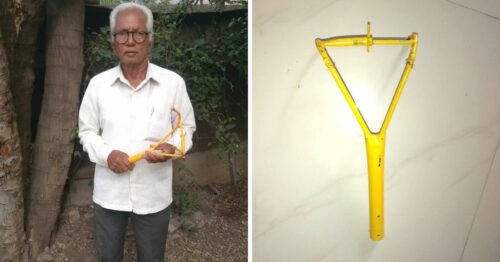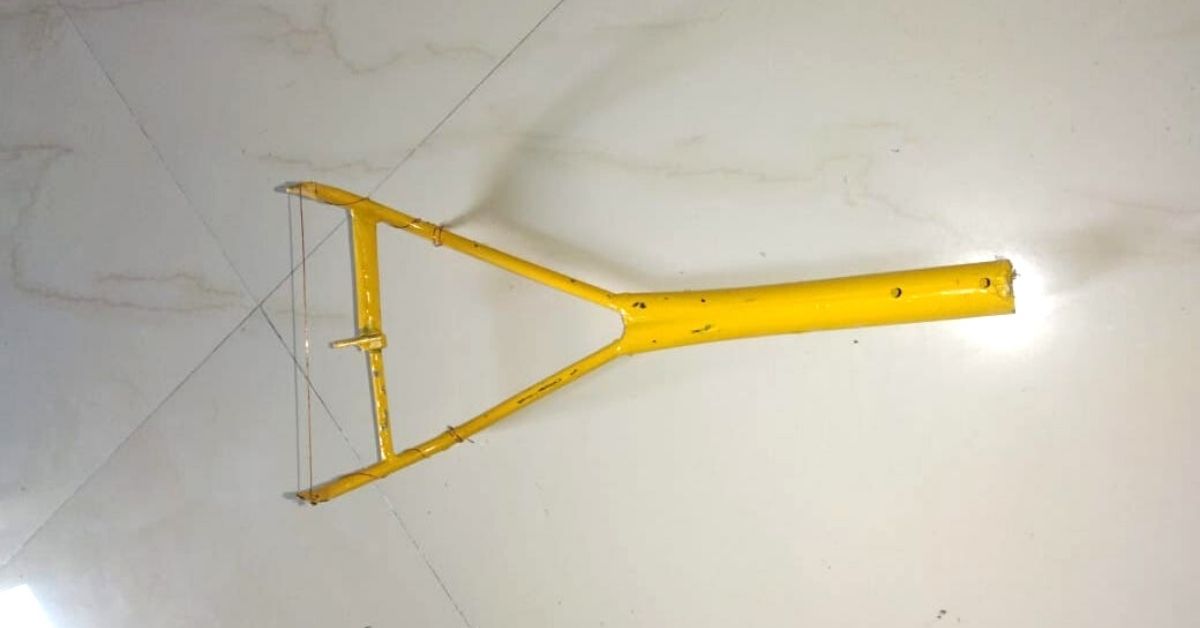Agriculture is confronted with a labour shortage. Crop productivity is hampered by high labor and inconsistent agricultural activity, prompting farmers to change their farming practices at times. Ashok Jadhav of Chinchner village in Satara, Maharashtra, had similar problems.
He began farming on his ancestral land of 2 acres in 1999, after retiring from a private company as a machinist. “Soybeans, turmeric, sugarcane, tomato, and soybeans are among the other veggies I plant.” I changed to organic farming, which resulted in weed issues.”
According to the 71-year-old, organic farming entails the use of natural fertilisers, which causes undesired weeds to thrive. Weeds deplete soil nutrients, which is detrimental to plants.

To address the problem, Ashok began using weedicide on the farm. “Although it was a good solution, the chemicals defeated the aim of organic farming.” Furthermore, the soil quality began to deteriorate. “We needed a healthier soil solution,” he adds, adding that he began employing labour to help with the project.
“However, labour prices were exorbitant, and I couldn’t afford to spend Rs 20,000 on labourers who I only needed on occasion,” he says.
Problem Fixed In Rs 400
Ashok notes that it was at that point that he began to consider novel solutions to the problem. “I collaborated with government agriculture experts to design a bicycle weeder that would kill weeds along the side of the crops.”
The wheels were equipped with blades that cut through the weeds. “However, it did not eliminate the weeds that grew between the crops,” he continues. In quest of a more economical option, he went to agricultural shows to look for tools and equipment. He failed miserably.

“In 2018, I decided to try out an improvised remedy. “I bent two iron rods at either end and fastened an 8-10 inch thin metal wire in between, linking the two rods with a metal pipe as a handle,” Ashok explains.
Weeds must be manually pulled out with the equipment, and metal wires must be used to cut the roots. The equipment performed well and made it possible to eradicate weeds from crowded crops and small gaps.
The metal wire, on the other hand, broke due to the weeds’ stress or the thick stems. “The wire lost tension between the metal rods at times, causing injury to the hand and shoulders,” he claims.
Over the next two years, Ashok tweaked the device a number of times. “I changed the angle at which the iron rods were bent and added a metal piece to support the cutting wires. In terms of efficiency and performance, I discovered that a 7-inch metal wire worked best.

“Utilized cable wires from two-wheeler brakes were used to replace the thin metal wires,” he explains, adding that his past knowledge as a machinist came in helpful throughout the operation.
To make the tool lighter, the metal handle was replaced with bamboo. “It went a long way toward overcoming the flaws.” It used to take ten labourers a full day to work on a single acre of land, which cost Rs 3,000 a day. However, the same task can now be completed in two days by a single worker for roughly Rs 300,” he claims.
The device is low-maintenance and has no moving parts, according to Ashok.

So far, roughly 5,000 smartphones have been sold, according to Ashok. “I receive inquiries from all across the state, including Aurangabad, Kolhapur, Pandharpur, Yavatmal, and other cities.” He adds, “I recently received an order from Punjab, Karnataka, and Madhya Pradesh.”
In addition to developing the equipment, Ashok wants to explore other new farming methods.
“I’m delighted that my improvised solution is saving thousands of farmers money, time, and effort in resolving such a common issue in the farming community,” he says.
Also Read: Ever Imagined A Day Without Water?











